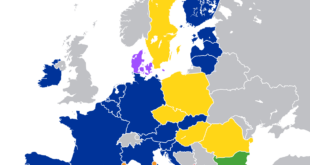- Engineering Exports Promotion Council (EEPC) of India has urged the Centre to expedite negotiations with the European Union (EU) for the proposed free trade agreement (FTA), since the engineering industry has been impacted on the exports front by the withdrawal of the Generalised System of Preferences (GSP) by the EU on select items from January 1, 2023.
- Major engineering products that are exported to the EU include boiler machinery and parts, products of iron and steel, electrical machinery and equipment, ferro alloys, aluminium and products among others.
- India’s export share to EU has been quite significant (more than 10%) in sectors like hand tools and parts, other base metals, plates, sheets, strips and foil of nickel alloys.
- Due to the withdrawal of GSP rate, which was benefitted at zero rate of duty, they now attract a greater rate of duty in the range of 0. 3% to 8%, thereby affecting cost and export business drastically.
- While policy decisions like withdrawal of GSP on certain goods exported from India cannot be reinstated, speeding up the negotiations for the FTA with EU is the only way to offer a level playing field for Indian engineering exports to EU, second largest market after North America.
- Since the GSP withdrawal, the council has been receiving many complaints from members saying that goods shipped in December, 2022 that reached in January, 2023 have been affected.
- Unfortunately, the cost had gone up because of withdrawal of GSP.
- Now, they are incurring the additional cost, while they are already operating on a low margin due to competition.
- Cost becomes critical as Indian companies are competitors for some of them operating from certain EU countries.
- When there was GSP, there was a level playing field. Now it becomes beneficial for European buyers to source it from other EU countries than from India.
- FTA with the EU currently under negotiation would soon conclude and the agreement gets signed at the earliest.
- With EU, there are some concerns from the industry. Some sectors will be keen on market access, while some will see it as a threat.
- The EU is an important destination for engineering product exports.
- For the automobile industry, signing an FTA with the EU may be a threat since they feel investment from EU countries will come down, Indian auto components have a good market in Europe.
- There are conflicting interests between various stakeholders and that’s why it is taking time.
- Ultimately, FTA will solve the problem being faced by the industry suffering from withdrawal of GSP.
Generalised system of preferences
- The Generalized System of Preferences, or GSP, is a preferential tariff system which provides tariff reduction on various products.
- The concept of GSP is very different from the concept of “most favoured nation” (MFN).
- MFN status provides equal treatment in the case of tariff being imposed by a nation but in case of GSP differential tariff could be imposed by a nation on various countries depending upon factors such as whether it is a developed country or a developing country.
- Both the rules comes under the purview of WTO.
- GSP provides tariff reduction for least developed countries but MFN is only for not discriminating among WTO members.
SOURCE: THE HINDU, THE ECONOMIC TIMES, PIB
 Chinmaya IAS Academy – Current Affairs Chinmaya IAS Academy – Current Affairs
Chinmaya IAS Academy – Current Affairs Chinmaya IAS Academy – Current Affairs



